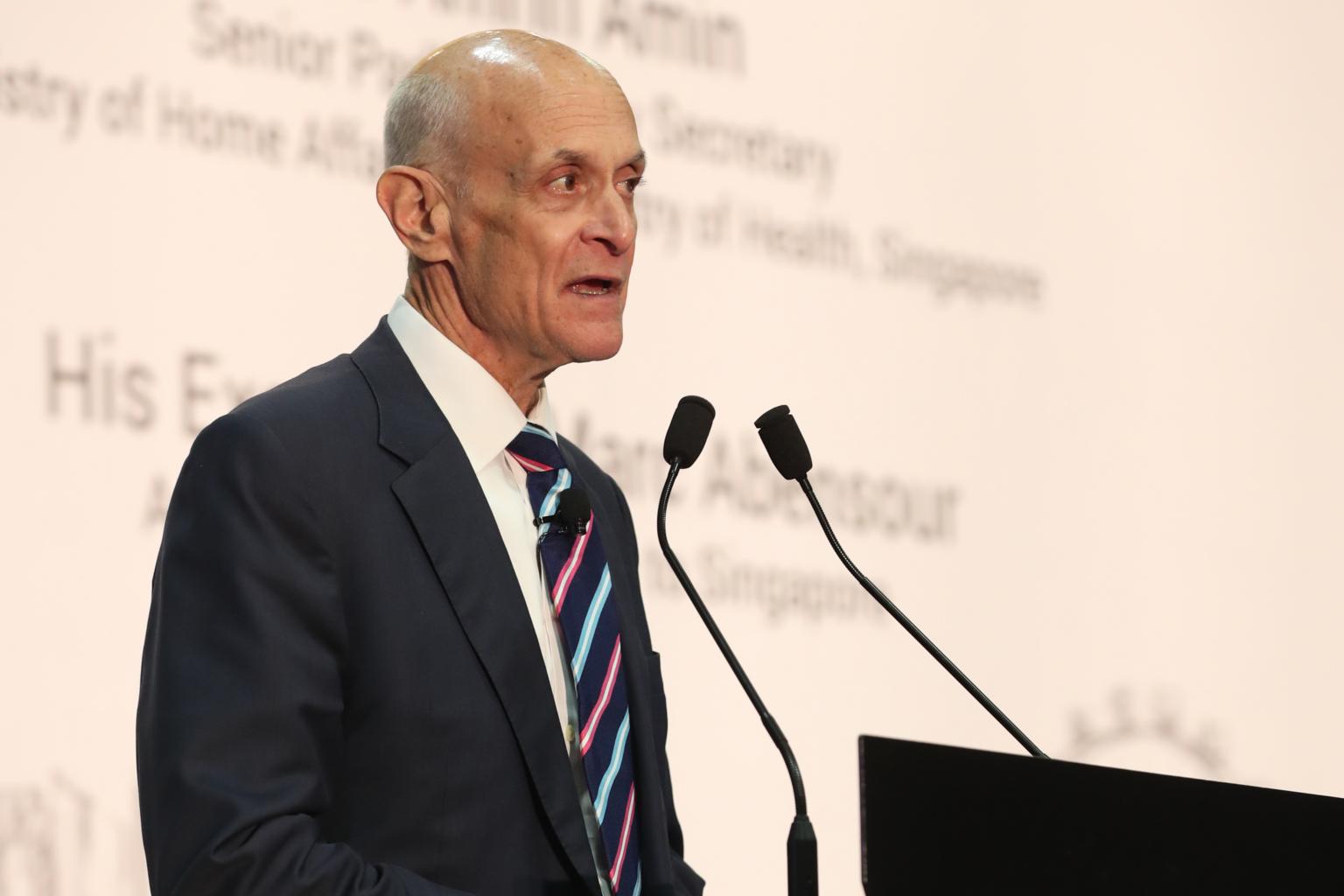Right issues being discussed for Singapore's draft laws on fake news: Former US homeland security chief
Sign up now: Get ST's newsletters delivered to your inbox

Former United States secretary for homeland security Michael Chertoff speaking at the regional security conference Milipol Asia-Pacific 2019 at Marina Bay Sands Expo and Convention Centre on April 3, 2019.
ST PHOTO: TIMOTHY DAVID
SINGAPORE - The Republic is discussing the right issues when it comes to laws against fake news but there are no easy answers, said former United States secretary for homeland security Michael Chertoff.
Rather than debate aspects of misinformation that are outright deceptive, such as impersonation, artificial amplification of content and intervention by foreign entities, the harder questions to answer are what constitutes fake news, said Mr Chertoff in his keynote speech on the second day of regional security conference Milipol Asia-Pacific 2019.
"What's fake or false? Sometimes it gets into the area of exaggeration or taking things out of context. Who decides what is false? And what is the remedy - do you shut it down completely or give a warning that the info is not true?"
In his 30-minute address on Wednesday (April 3) Mr Chertoff, 65, who served under President George W Bush, also touched on data protection and privacy.
"Fake news isn't new. The reason it became urgent to deal with is because the amplification and virility of fake news is a new phenomenon," he told The Straits Times on the sidelines of the conference.
While he refrained from commenting directly on the draft law Singapore introduced on Monday to combat fake news, he said it was useful to draw a distinction between a "clear falsity" and opinion. He also said it was important for the courts to be involved in the process of determining what constituted fake news.
"We're interested in looking at what Singapore and other parts of the world are doing, and I would like to see if Singapore can get involved in the commission," he said, referring to the Transatlantic Commission on Election Integrity, a group he co-chairs that aims to address foreign interference in elections. The commission is made up of various sector leaders from Europe and America.
He is also the co-founder of security and risk management consultancy The Chertoff Group, and previously served as a US federal judge and assistant attorney general.
During his years as a US federal prosecutor he investigated and prosecuted cases of political corruption, organised crime and terrorism - including the 9/11 terrorist attacks.
Another pressing concern is the issue of hate speech, which can "inspire" people to commit acts of violence such as the Christchurch shootings last month, Mr Chertoff told The Straits Times.
The Australian gunman had reportedly posted a manifesto online before the attack in which he said he was inspired by Norwegian right-wing terrorist Anders Behring Breivik, who was responsible for the deaths of 77 people in 2011.
"This would not have happened 20 years ago; there wouldn't have been a way to link them up. This is similar with the recruitment of terrorism," said Mr Chertoff, arguing that the spread of ideologies that promote violence can trigger one to act.
The danger is especially high for individuals who are predisposed to violence or are mentally unbalanced, he said, noting that the face of terrorism is also changing.
"It is no longer Islamic extremist groups; it could be any ideology gone wrong including religious extremism or white supremacy."
He said: "In many cases the ideology is simply the last step for someone who is already feeling frustrated and angry, and they just want to act out. "
While Islamic radicalisation is still an issue, terrorism has to be viewed more broadly.
He said terrorism and acts of violence should not just be a law enforcement issue, and social service and public health agencies should be involved.
"We need to expand the scope and learn more about what makes people take that step into becoming violent actors. What makes them susceptible to be radicalised?"
Mr Chertoff said intervention could come in a form similar to addiction treatment. "It would be best to be able to stop it before it gets to the point where you have to arrest somebody."
The three-day Milipol Asia-Pacific conference is held at the Marina Bay Sands Expo and Convention Centre and will end on Thursday (April 4).


